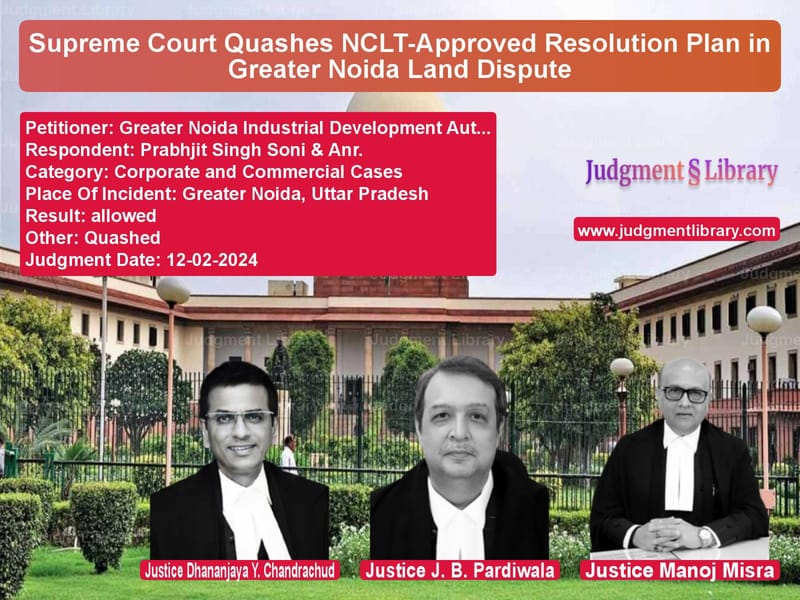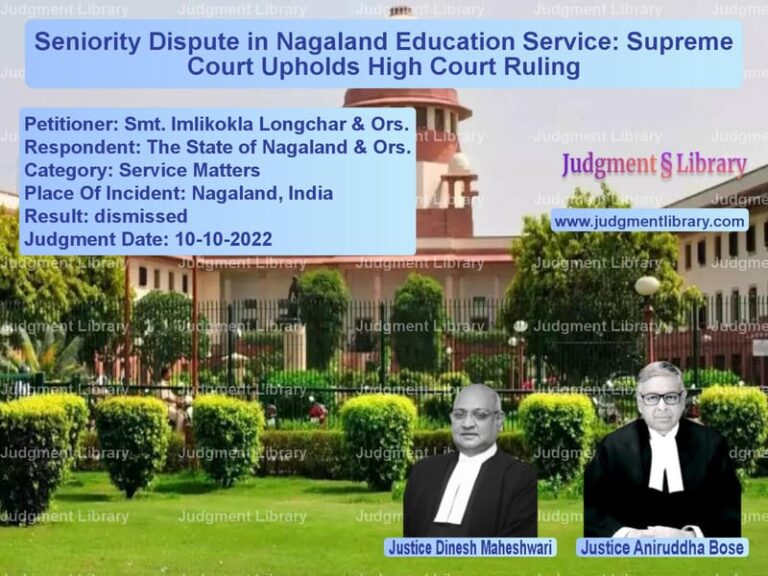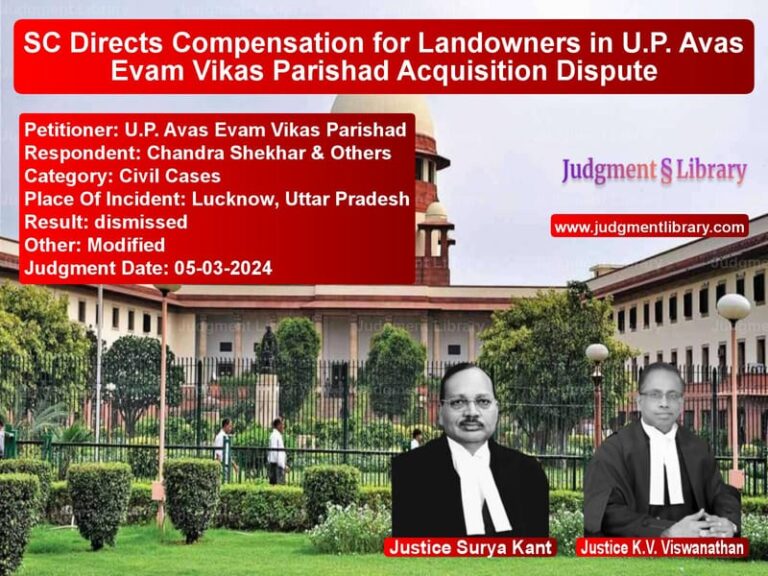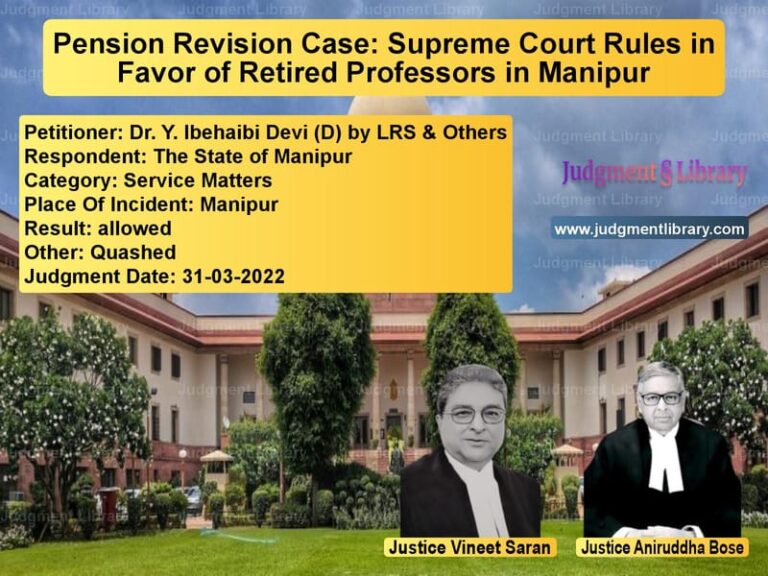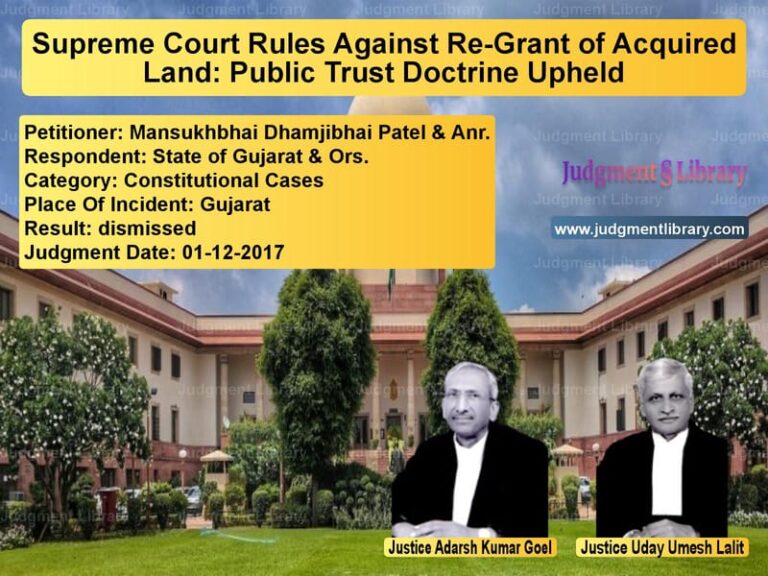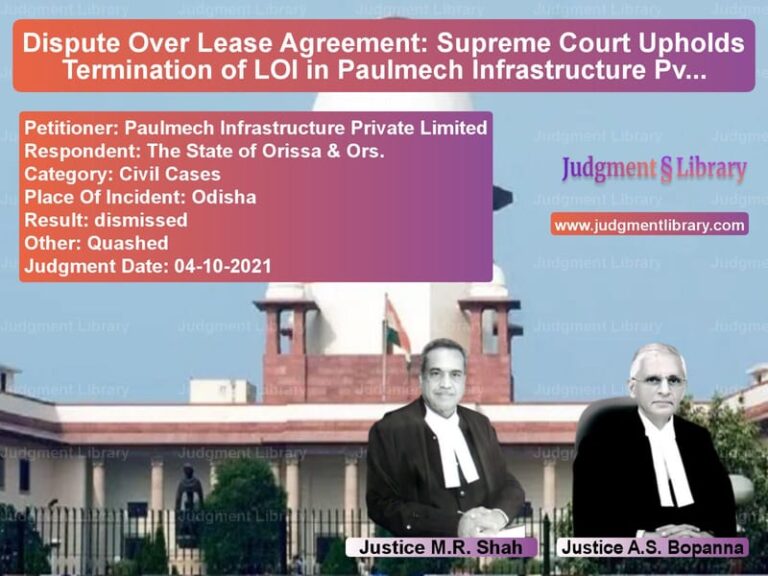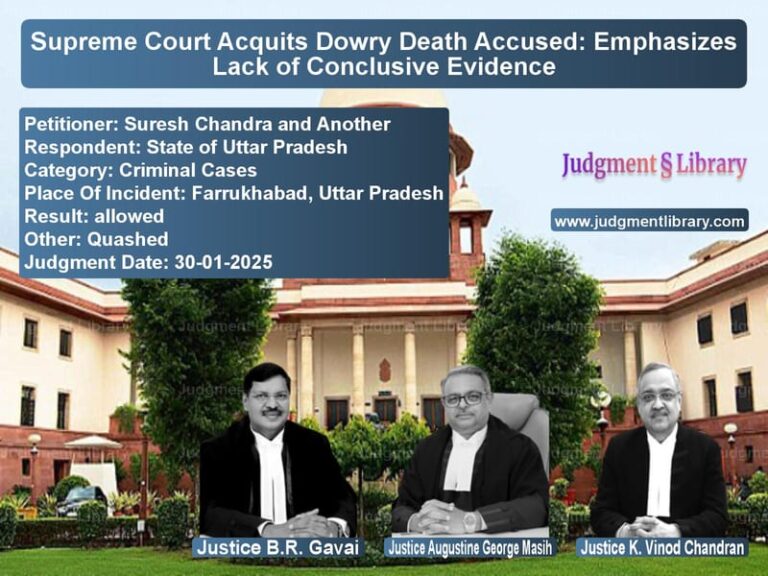Supreme Court Quashes NCLT-Approved Resolution Plan in Greater Noida Land Dispute
The Supreme Court of India has set aside the approval of a corporate resolution plan by the National Company Law Tribunal (NCLT) in a significant case involving the Greater Noida Industrial Development Authority (GNIDA) and M/s. JNC Construction (P) Ltd. The ruling highlights the rights of statutory authorities in insolvency proceedings and emphasizes the necessity for adherence to due process under the Insolvency and Bankruptcy Code (IBC), 2016.
Background of the Case
The dispute emerged when GNIDA, a statutory authority responsible for industrial and residential development in Greater Noida, allotted a 90-year lease of land to JNC Construction in 2010. The lease agreement required installment-based payments for the premium, starting from 2012. However, the corporate debtor defaulted on its payments, leading GNIDA to issue demand-cum-pre-cancellation notices.
In 2019, insolvency proceedings were initiated against JNC Construction under the IBC. During the corporate insolvency resolution process (CIRP), GNIDA filed a claim of ₹43.4 crore, seeking recognition as a financial creditor. However, the resolution professional (RP) classified GNIDA as an operational creditor, significantly diminishing its influence in the resolution process.
Proceedings Before the NCLT
Following the initiation of CIRP, GNIDA submitted its claim in January 2020, arguing that its lease dues made it a financial creditor. The RP, however, did not recognize GNIDA as a financial creditor, instead treating it as an operational creditor. This classification prevented GNIDA from participating in the Committee of Creditors (CoC) meetings and stripped it of voting rights in the resolution process.
Despite GNIDA’s objections, the NCLT approved the resolution plan on August 4, 2020. The plan significantly undervalued GNIDA’s dues, allocating only ₹1.34 crore against its ₹43.4 crore claim. Furthermore, the resolution plan structured payments in such a way that GNIDA would receive its dues only upon the registration of each unit sold under the redevelopment project.
Appeal Before the NCLAT
Challenging the NCLT’s decision, GNIDA approached the National Company Law Appellate Tribunal (NCLAT). The key arguments presented by GNIDA were:
- The RP erred in classifying GNIDA as an operational creditor instead of a financial creditor.
- As the owner of the land, GNIDA had a statutory charge over the corporate debtor’s assets, making it a secured creditor.
- The resolution plan did not account for GNIDA’s legitimate claims and was approved without its participation.
- GNIDA was not notified of the CoC meetings, violating procedural fairness under the IBC.
The NCLAT, however, dismissed GNIDA’s appeal, citing procedural delays and the finality of the CoC’s commercial decisions.
Supreme Court’s Observations
The Supreme Court examined whether GNIDA was wrongly classified as an operational creditor and whether procedural lapses vitiated the resolution process. The Court found multiple irregularities:
- GNIDA had submitted its claim on time, yet the resolution plan falsely recorded that it had not.
- As a statutory authority, GNIDA had a charge over the land, classifying it as a secured creditor.
- The resolution plan did not acknowledge GNIDA’s secured status and provided inadequate financial recovery.
- GNIDA was excluded from CoC meetings, depriving it of the opportunity to present its claims.
The Supreme Court ruled:
“A resolution plan must be fair and equitable to all creditors, especially statutory authorities with a charge over the assets of the corporate debtor.”
The Court further emphasized:
“The resolution plan fails to satisfy the requirements of Section 30(2) of the IBC and must be sent back to the CoC for reconsideration.”
Key Legal Findings
The Supreme Court reaffirmed several critical principles regarding insolvency resolution:
- Classification of Creditors: The Court clarified that statutory authorities with a charge over corporate debtor assets should be treated as secured creditors.
- Due Process and CoC Participation: The ruling stressed that creditors must be properly classified and notified of CoC meetings.
- Judicial Oversight Over Commercial Decisions: While courts generally defer to the commercial wisdom of the CoC, procedural violations warrant judicial intervention.
- Fair and Equitable Treatment: Resolution plans must comply with Section 30(2) of the IBC, ensuring fair treatment for all creditors.
Final Judgment
The Supreme Court set aside the resolution plan and directed the CoC to reconsider GNIDA’s claims. It ruled:
“The resolution plan does not conform to statutory requirements and is therefore quashed. The matter is remanded to the CoC for fresh consideration.”
Legal Implications of the Judgment
This ruling has far-reaching consequences for insolvency resolution in India:
- Statutory Authorities’ Rights: The decision strengthens the position of government agencies in insolvency proceedings.
- Procedural Fairness in CIRP: The judgment underscores the necessity of following due process in resolution proceedings.
- Increased Judicial Scrutiny: Courts will scrutinize CoC decisions more closely when procedural violations are alleged.
Conclusion
The Supreme Court’s ruling in this case reinforces the principle that statutory authorities cannot be marginalized in insolvency proceedings. By ensuring that secured creditors receive fair treatment and procedural violations are corrected, the judgment strengthens the integrity of India’s insolvency framework. This case serves as a precedent for future disputes involving land-owning authorities and corporate debtors under CIRP.
Petitioner Name: Greater Noida Industrial Development Authority.Respondent Name: Prabhjit Singh Soni & Anr..Judgment By: Justice Dhananjaya Y. Chandrachud, Justice J. B. Pardiwala, Justice Manoj Misra.Place Of Incident: Greater Noida, Uttar Pradesh.Judgment Date: 12-02-2024.
Don’t miss out on the full details! Download the complete judgment in PDF format below and gain valuable insights instantly!
Download Judgment: greater-noida-indust-vs-prabhjit-singh-soni-supreme-court-of-india-judgment-dated-12-02-2024.pdf
Directly Download Judgment: Directly download this Judgment
See all petitions in Bankruptcy and Insolvency
See all petitions in Corporate Compliance
See all petitions in Company Law
See all petitions in Judgment by Dhananjaya Y Chandrachud
See all petitions in Judgment by J.B. Pardiwala
See all petitions in Judgment by Manoj Misra
See all petitions in allowed
See all petitions in Quashed
See all petitions in supreme court of India judgments February 2024
See all petitions in 2024 judgments
See all posts in Corporate and Commercial Cases Category
See all allowed petitions in Corporate and Commercial Cases Category
See all Dismissed petitions in Corporate and Commercial Cases Category
See all partially allowed petitions in Corporate and Commercial Cases Category

